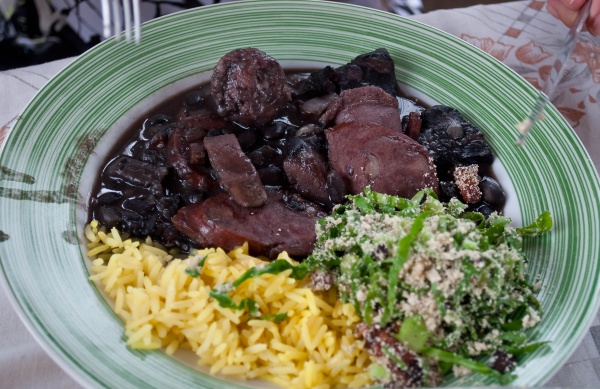Facts About Feijoada
Feijoada is a cherished stew made with beans, beef, and pork, celebrated in countries such as Portugal, Brazil, Angola, Cape Verde, Guinea-Bissau, Mozambique, Timor, Goa, and Macau. The name "feijoada" is derived from the Portuguese word for beans, "feijão." While the recipe varies slightly across these regions, in Brazil, it typically features black beans and is accompanied by rice and a variety of sausages.
The origins of feijoada can be traced back to ancient Roman traditions of cooking meat stews with vegetables. These culinary practices spread across Europe and influenced many regional dishes. A similar dish in Greece, called fasolada, is even considered a national dish and is linked to ancient Greek cuisine.
In Brazil, feijoada boasts numerous regional variations, with the Rio de Janeiro version being especially popular. This version includes black beans, different cuts of pork and beef, and often vegetables like cabbage, kale, and carrots. Feijoada is a celebratory dish, typically enjoyed during leisurely weekend gatherings with family and friends.
Often referred to as Brazilian soul food, feijoada is traditionally served with white rice, orange slices, collard greens, and farofa (toasted cassava flour). The dish's history is deeply connected to Brazil's past of slavery. Some theories suggest that it originated from slaves using leftover ingredients provided by their masters.
Known for its rich and hearty flavors, feijoada is frequently compared to American Southern soul food. It stands as a symbol of Brazilian culinary heritage and is meant to be savored and shared among loved ones during relaxed meals.
From a nutritional standpoint, feijoada is often paired with orange slices to help enhance the absorption of iron from the beans. This nutritious and filling dish beautifully reflects the diverse cultural influences that shape Brazilian cuisine.
